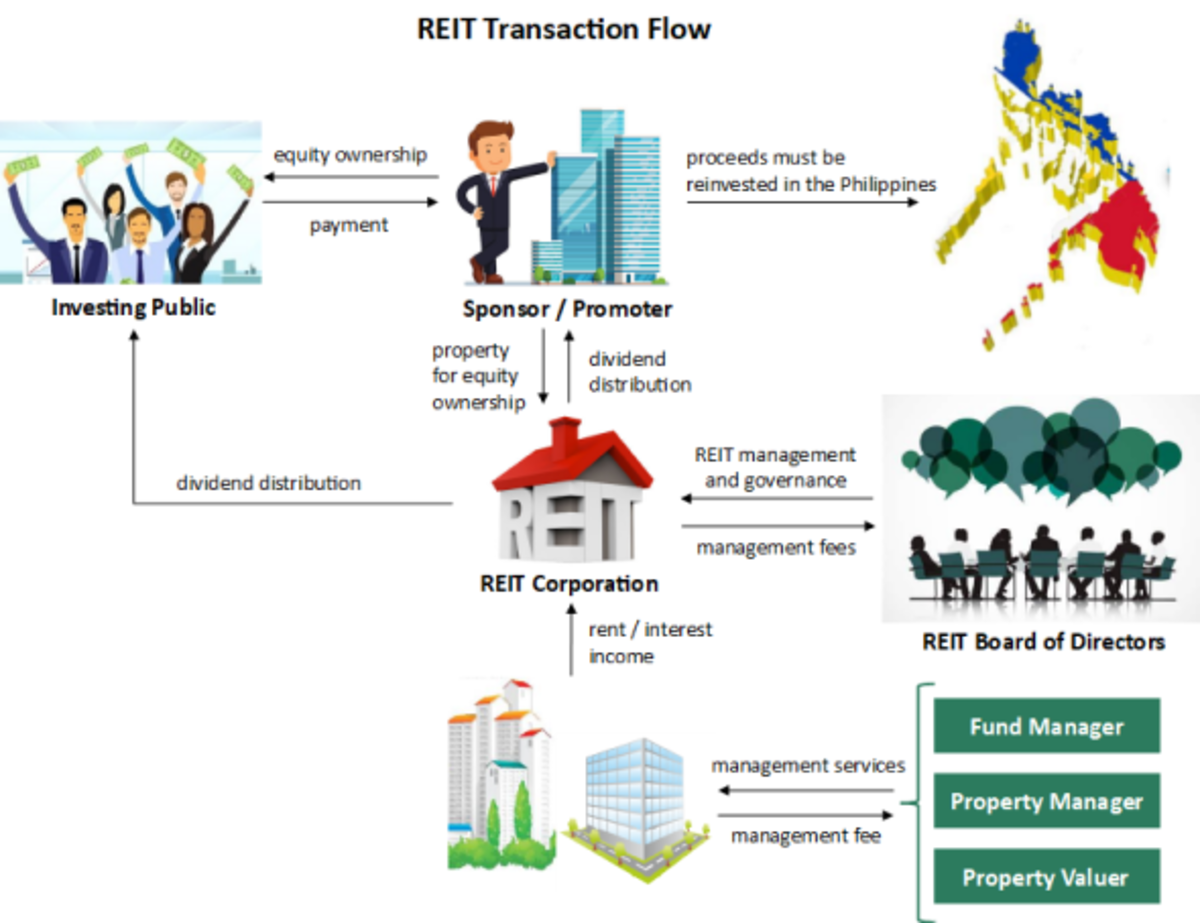How To Short Stock - Short Sale Explained - Expert Perspective

Welcome to a customized, detail oriented virtual tutorial which includes a former "Wall Street Professional's" insightful explanation, in depth complimentary perspective, and unique take covering the extremely risky, sub-market trading action commonly known as "Stock Short Selling". A mysterious, seemingly unapproachable, top secret, exclusive underground strategy of which only highly knowledgeable, connected individuals gifted with special agency clearance are allowed to participate. Well, not exactly. As clandestine and confusing a financial play as it may seem to the novice or intermediate level investor / trader, a common misconception, especially following several unsuccessful attempts at deciphering the distinct terminology, shorting a stock is not necessarily a venture reserved for a select few money motivated, status symbol driven Wall Street insiders, or grotesquely wealthy, high roller tycoons exercising illusory rights under the auspices of a sovereign somewhere in an undisclosed exotic locale. It is however, a somewhat complicated, consistently risky, leveraged trading strategy open and available to all individuals or entities who maintain essential credentials and resources necessary to secure an approved, full service or discount brokerage account. Notwithstanding certain restrictions and a comprehensive understanding of the specific language associated with the unique strategy to mitigate or prevent unfortunate financial mishaps or possibly even account paralyzing disasters <>
How is it done? Can anyone do it? What are the potential risks? How does selling a stock short differ from a traditional stock purchase transaction executed with the intent to hold in a portfolio long term as a potential equity building or dividend generating investment? - All these questions will be answered and much more will be covered in the following informational oriented training module designed specifically to help the investor / trader discern fact from fiction, translate and clarify vital terminology, and thoroughly understand the basic fundamentals, philosophy, and overall concept related to "Stock Short Selling". This brief yet in depth tutorial, is designed to assist and educate the novice, intermediate level, and even experienced professional by introducing and exploring the essential elements of a "Stock Short Sale". What it is, how and when to place the order for immediate, unimpeded or restricted execution in accordance with the "Up Tick Rule", and capped off with the inclusion of a summary explanation related to margin and where the shares actually come from to facilitate a borrower or short seller of stock. All overlapping financial components which need to be addressed, examined, and studied before a comprehensive understanding of this exceedingly risky, yet potentially very rewarding stock trading strategy can be banked to memory for subsequent recall, withdrawal, and efficient utilization <>

~ FAVORABLE SHORT SELLING ENVIRONMENT / When to Short a Stock
Anticipating a fundamental structural failure within the context of an individual corporation? A company specific, catastrophic, profuse revenue plunge? Highly volatile political uncertainty, or impromptu, potentially severe and long lasting foreign conflict? The preceding are just a few typical examples of the unfortunate, yet opportunistic driven circumstances preferred by expert short selling Wall Street Traders which can ultimately lead to a significant destabilization of the underlying financial market terrain. All situations which can, and do indeed occur intermittently throughout the duration of a long or short term trading cycle, fostering an uncertain global financial climate conducive to producing moderate to severe market gyrations or price adjusting eruptions inevitably paving the way for shrewd, intuitive opportunists to potentially bank a profit via the pursuit of short selling individual stock issues or major indices. Mutual cooperation is required to be successful, introduction of your investment dollars coupled with a collapse of your target equity <>
All events listed above are tangible warning signs, although many can indeed turn out to be merely psychological manifestations, yet still possess the overriding power to trump technical or even sound fundamental aspects, leading to the possibility of an eminent overall market or issue specific melt down in confidence inevitably culminating in a short, intermediate, or even extended, long term price implosion connected to an individual stock, sector, or index. The distinct, essential corrective elements all the "Pros" endlessly sweep the investment radars for which exhibit the clear cut signs of a potential change in sentiment toward the buying, selling, and ultimate exchange of financial instruments <>
Just like the mighty lion perusing adjacent terrain with mal-intent, surveying the vast plain without reservation for the weakest, most vulnerable wilder beast, so goes the contrarian stock trader. And how can you, as a speculation driven, risk accepting, previously approved financial instrument trader attempt to capitalize on this segment of the equities markets? With a "Short" position of course - Now that you're beginning to acquire a preliminary grasp and detailed understanding of the specific, turbulent market conditions conducive to implementing a potentially successful contrarian short trade, it's time to discover, explore, and learn what it actually is <>

DID YOU KNOW? - "Short Selling" is a short term, high risk trading strategy designed specifically for quick profit - Not a traditional long term buy and hold investment?
|
|---|



~ SHORT SALE DEFINED
In brief, a short sale of stock is a set of married "Sell / Buy" transactions, executed in that precise order, designed to generate a net profit if the equity involved experiences a price decline sometime in the future subsequent to achieving the "Sell" component.The inverse sequence as compared to a traditional "Buy / Sell" investment in which you acquire ownership and an equity interest. The first phase of the transaction entails borrowing and immediately selling a previously determined number of shares of stock on the open market, while the second and final phase requires the purchasing of an identical number of company shares at the prevailing market price to fulfill the "Replacement" obligation to the owner. The mathematical difference between the two married transactions (Less applicable fees) equals an overall net profit or loss for that given trading event <>
Theoretically, the sharper the fall, the greater potential profit can be realized for a booked financial gain and of course the opposite result ensues if the market does not cooperate with your desires and the stock price catches an extraordinary bid, driving it upward into the outskirts of our stratosphere and beyond. An unfortunate, potentially extremely costly, yet very common occurrence for many traders, even the so called "Pros" <>
shorting a stock is essentially the exact opposite of what most individuals widely accept as traditional investing which is commonly achieved when a buyer simply purchases shares of a stock or index tracking instrument in anticipation of an immediate, or future increase in value followed by price inflation. In brief, when you short a stock, you are placing a bet with negative sentiment AGAINST a solid fundamental outlook or, any number of technical, company specific managerial aspects, geopolitical, or other highly influential factors which can have a positive impact and act as catalyst for the company or overall environment in which it conducts business. Hence, generating broad public perception of "Sex Appeal" for the company, therefore, ideally propelling the stock price higher for a positive outcome. Essentially, when you short a stock, you benefit from price DECLINES. The opposite of "Traditional Investing" designed for price GAINS <>

~ ANATOMY OF A SHORT SALE (Basic Concept)
- Choose an equity you wish to "SELL SHORT" subsequent to in depth due diligence
- Log onto your Discount Brokerage Account or contact a Full Service Stockbroker
- Place an order to "SELL SHORT" the number of shares designated
- The shares are "BORROWED" on your behalf and sold in the open market
- Proceeds are then automatically deposited into your account
- "Trade Commission & Margin Fee" (If Applicable) is debited to your account
- A "Trade Confirmation" is sent to you via electronic receipt or hard copy mail
- At your discretion, a "Buy to Cover" stock order is executed to replace borrowed stock
- The difference between "Sold Proceeds" and "Stock Purchase Cost" (Less Commissions & Margin Fees) determines Profit / Loss
- NOTE: "SHORT AGAINST THE BOX" = When you own identical shares in which you sell short -




- EXAMPLE (Net Profit) -
| - EXAMPLE (Net Loss) -
| - SHORT -
|
|---|---|---|
Sold Stock / Proceeds -> $5,000
| Sold Stock / Proceeds -> $5,000
| S
|
Stock Purchase @ ------> $4,500
| Stock Purchase @ ------> $5,300
| T
|
Trans. & Margin Fees ----> $100
| Trans & Margin Fees -----> $100
| O
|
-------------------------
| ------------------------
| C
|
NET PROFIT = $400
| NET LOSS = $400
| K
|




Margin Account Required?
Yes, a margin account must be applied for and subsequently maintained in accordance with Reg -T requirements. When you engage in a short sale stock venture, you essentially borrow the shares in return for a margin rate of interest paid to the securities "Lender". Essentially the equivalent of "Leverage" is applied, and this type of financial transaction almost always requires the use of "Margin". When initiating the new account it would be prudent to discuss all the investment possibilities and potential pitfalls related to margin purchases and short selling in general with a qualified, reputable registered representative from the very beginning. Ask him / her to thoroughly explain and itemize each detail of the account prior to trading. If you don't accomplish this fundamental aspect, I can almost guarantee there will be surprises forthcoming on your initial statement including the possibility of what may appear to be phantom charges. Certain minimum criteria and requirements must be met before a margin account can be approved and activated by a principal of the firm then granted to the client . Considerations include, income, net assets, liquid assets, trading, and previous investing experience etc -
~ CLOSING A SHORT POSITION
In the final analysis, this is where a net profit or loss is realized. The price at which you "Buy Shares To Replace" and fulfill your obligation, determines the final outcome regardless of the proceeds banked subsequent to the initial sale of borrowed stock. Unlike a traditional stock purchase, or "Long Position", the first segment of the entire short sale process is a "Sell" order not a "Purchase" order, therefore, the shares must be replaced sometime in the future by you, the seller / borrower. Just like any other situation when an item is borrowed, it must be returned or replaced within a reasonable period of time to avoid complications, the same is true with a short sale of stock. You've essentially borrowed shares and subsequently sold them on the open market for monetary gain, now you are obligated to buy them back at some point in the future at what you had previously speculated would be a lesser price verses what they were sold for to bank the difference. An obligation to return shares in whole, to the brokerage firm that originated the securities loan <>
If your research or third party brokerage advise ultimately pans out, and you do not fall victim to the ever present, naturally occurring or artificially induced short squeeze, and the stock does indeed retreat in price prior to replacement purchase, this should enable you to buy the identical shares in a timely manner with relative ease. Leaving only the remnants of a distant short sale transaction memory, and enjoyment of the monetary fruits of a successful trade. On the contrary, if subsequent pricing action on the issue in question simply refuses to cooperate or accommodate your many hours of research by levitating upward and onward without hesitation nor intermittent opportunistic buying dips in the offing, you just might be in for a rather unfortunate, extremely uncomfortable, uncontrollable account draining experience when shares necessary to close out the back end of the transaction, are purchased at an inflated value relative to the original sale price. A circumstance in which you as risk taker, eventually lose money and possibly even confidence in yourself or Financial Advisor who had made the initial recommendation. Time for immediate re-evaluation <>


DID YOU KNOW? - When a stock you own is held in "Street Name" the Broker / Dealer who holds the certificates in trust, has the right to lend your shares to a "Short Seller" entitling the firm to collect a reasonable margin rate of interest and incurring the legal obligation to return identical shares upon your request?
|
|---|



~ INHERENT RISKS OF SHORT SELLING
The risks are substantially greater verses a conventional "Long" stock position, i.e. purchasing shares in anticipation of a rise in price out of which a future profit can materialize or tangible dividend can be realized. In theory, a potential loss incurred by the trader who had assumed the obligation to purchase stock subsequent to establishing a short position by selling shares he / she did not own, is unlimited since the price of a stock, regardless of the highly unlikely occurrence, can theoretically run up to infinity, thus creating a situation in which the investor can lose an infinite amount of money <>
In reality, has this ever happened? Not to my knowledge, however, I've personally witnessed substantial sums of money departing brokerage accounts when an equity, subsequent to a bet against it was made via a short position, began an astounding run in the opposite direction of what the investor anticipated, hence a buy back to replace at a much higher price was the unfortunate consequence resulting in tremendous financial loss. Although I've never engaged in the practice of short selling as agent or principal due to what I personally believe to be an underlying "Unpatriotic" nature of the concept, I'm very aware of the fact that shorting a stock is very serious business and certainly not an endeavor to be taken lightly or in stride by the novice or even experienced trader. If you are timid, unsure, hesitant, or risk-averse in overall investment strategy and more importantly temperament, in depth study, education, and extensive research prior to attempting your first trade would be considered mandatory in my opinion <>


DID YOU KNOW? - When an Investor / Trader sells a stock short, theoretically, he / she assumes the risk of unlimited loss potential?
|
|---|



NOTE: "UP TICK RULE" - Periodically, the SEC (Securities Exchange Commission) will survey the financial market landscape and adjust, modify, alter, or implement entirely new rules and or policies related to exactly "When" an Investor / Trader can place an order to sell short a stock. The "Up Tick Rule", which has been repealed and reinstated at various times throughout Wall Street history, dictates a specific window of opportunity during the trading cycle when an investor can actually place an order and pursue an executed transaction. Previously instituted rules indicated a short sale sell order must be placed (Online with a discount firm, or with the assistance of a full service broker), when the price of the specific security in question (Not the overall market average or any other derivative of said stock) is either trading side ways or, increasing in price. If a trade is placed while the price is declining, in which might be deemed by the overseeing authority as an unfair advantage, a violation of the "Up Tick Rule" had indeed occurred. The SEC and other regulating entities and or Broker / Dealers frequently re-visit this policy to re-evaluate the relevance and or importance to determine positive or negative impact on the overall financial markets rendering a decision to maintain the rule or adjust accordingly. Always check with your Broker / Dealer for updated information prior to engaging in a short sale transaction -
|
|---|


DID YOU KNOW? Robust, or the occurrence of an excessive whirlwind of "Short Selling" by the masses can exacerbate or become the root cause of an artificially induced, severe, stock specific or market index correction?
|
|---|



- FINAL THOUGHT - Reflecting upon my past and present personal experiences within the financial industry I'm left with many eclectic thoughts and pearls of insight including the following perspective. All knowledgeable, credible, and above all, ethical financial professionals, and or "Expert" equities traders / brokers realize it would be considered a gross disservice to diminish, marginalize, or even intentionally dismiss the importance of understanding the potentially devastating financial impact short selling can have on a portfolio, or separate funds allocated for aggressive ventures, especially in the context of the novice trader.
- Aside from a few risky call and put option strategies in an attempt to help mitigate or cushion "Short Selling" losses, all of which in and of themselves can actually have an unintended reverse affect and ultimately exacerbate the volatile situation by compounding losses already incurred if the options decline in value as well, once a short trade violently turns against you, and it can happen within the proverbial blink of an eye in the manifestation of a "Short Squeeze", especially with the ambiguous assistance of highly viewed television personalities appearing on cable or network business channels like CNBC, there's really nothing that can be done to "Take Back", cancel, rescind, revoke, invoke or provoke the convenient nullification of the trade to save the account.
- This informational training module was designed as a Basic Fundamental Knowledge Foundation Builder - Always consult a Financial Advisor before participating -


- All Articles Written <> Designed <> Created By Alternative Prime -
|
|---|
- Original <> Custom Photos Created By Alternative Prime -
|
|---|



- About The Author -
- Alternative Prime is a former Personal Finance Professional - Broker - Life Agent - Series 7 & 63 Registered Representative & NASD Member Licensed in 5 States - Stock & Options Researcher / Consultant / Trader / Investor - Contract Quality Check Supervisor - Regional Manager / Trainer and Formally Educated in Business / Contract Law Aspects -
- Travel Expert - Political Enthusiast, Aficionado & Activist - Independent Restaurant / Shopping Venue / Amusement & Recreational Park Reviewer / Evaluator - Musician & Independent Music Producer - Expert Creative & Conceptual Writer / Photographer -









